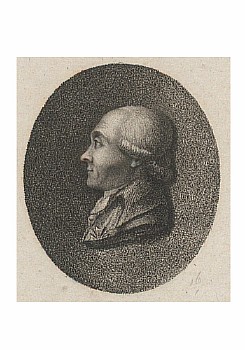|
- - - -
Pawel Brzostowski
BRZOSTOWSKI Pawel Ksawery
(30.03.1739 – 17.11. 1827)
Statesman, reformer, maecenas, translator, founder of the first in Europe “Peasant Republic”
Pawel Ksawery Brzostowski was born in the village of Mosar of Gluboksky district, Vitebsk region. His education he obtained at Wilno Jesuitical Academy. During the years 1755 – 1773 he was the canon in Wilno. From 1758 he studied at the Collegium Clementinum in Rome (Italy). He was a Great Clerk during 1762 – 1774, and Spiritual Referendary of the Grand Duchy of Lithuania during 1774 – 1787. During 1760 – 1780 he financed the publication of books by Jesuit, Piarist and Basilian printing houses in Wilno and proceedings of various writers, including translations of the “History of Poland” by P. Solignac (1763 – 1766), treatises of Seneca “About Mercy and Anger” (1775), the textbook by K. Narbutt “Logic, or the Science of Reasoning and Rational Discussion” (1769). He is the author of journalistic works, theological translations, historical and political proceedings. He translated the book “Science for the New Confessants” from Italian (Wilno, 1765 – 1766), the books by B. Gracian “Kritikon” (Wilno, 1765) and by H. Duhamel du Monceau “Fundamentals of Agriculture” (Vols. 1–2. Wilno, 1770 – 1773) from the French language. He is the author of the essay “Genealogical Message about the Family of Brzostowski” in Polish, Latin and French (1776, Rome, 1796, 1797).
He was fond of the philosophy of Henri de Saint-Simon, Thomas Moore, Charles Fourier, Jean Jacques Rousseau. He shared the views of the Physiocrats – French school of economists, advocates of the “natural order”. Inspired by reforms in Europe, he implemented cardinal social and economic reforms in 1769 in his manor Stary Merech in Wilno province, renamed to his name into Pavlovo, and in surrounding villages. He also introduced a broad peasant self-management of the type of two-chamber parliament (Pavlovsky Republic). Vital activity of the Pavlovsky Republic was regulated by the Charter, composed by Brzostowski with the participation of representatives of farmers, published in 1769 and 1791, respectively, and approved by the Seim of Corona in 1791. On the territory of the Republic, which occupied an area of 3000 hectares, serfdom was abolished, and replaced by money-rent. Peasants were allowed to freely control their household and the earth, do craft work and to trade. They elected their representatives for the upper chamber of the parliament, which also included administrators, appointed by the president Brzostowski. The lower chamber of the parliament was composed by all self-estate owners; its meetings were held separately from the upper one, chaired by the Governor. Pavlovsky Republic had arms, the capital, police, court, currency, mutual benefit fund, a pharmacy and a medical assistant. In 1769 Brzostowski opened a school for children and adults in the Republic, in which children were taught reading, writing, arithmetic, religion, geography, fundamentals of agriculture, home crafts, etc. In 1770, in Wilno, he published school textbooks “About agriculture for the benefit of the owners, living in Pavlovo” and “Medicine for the benefit of the owners living in Pavlovo”. The history of the Pavlovsky Republic is presented in an anonymous work “Pavlovo from 1767 until 1795, described by one household buddy” (Warsaw, Wilno, 1811). At the end of 1794 he sold Pavlovo, and lived in Dresden (Germany), then in Rome. After coming back home, he devoted himself to predicant and literary activities. He was awarded with the Order of White Eagle and Order of St. Stanislav. He died in Rukoiny near Wilno (now Vilnius, Lithuania).
Works:
1. O rolnictwie dla wygody gospodarzy w Pawlowie mieszkajacych. Wilno, 1770.
2. Lekarstwa dla wygody gospodarzy w Pawlowie mieszkajacych. Wilno, 1770.
3. Ustawy stosujace sie do dobrego porzadku i powinnosci osiadlych ludzi w dobrach Pawlowie czyli Mereczu przepisane roku 1769. Wilno, 1771.
4. Wiadomosc genealogiczna o domie Brzostowskich od weyscia z Polski do Litwy. 1776.
Literature:
1. Pawlow od 1767 do 1795 r. Od jednego domowego przyjaciela opisany. Wilno; Warszawa, 1811.
2. Turkowski T. Brzostowski Pawel Ksawery // Polski Slownik Biograficzny. T. 3. Krakow, 1937. S. 55–56.
3. Brzostowski Pawel Ksawery // Thinkers and enlighteners of Belarus: Encyclopaedic handbook. Minsk: Belarusian Encyclopaedia, 1995. P. 181.
4. Poznyakov V. Pavlovsky Republic // The Grund Dutchy of Lithuania: Encyclopaedia in 2 volumes. Vol. 2. Міnsk: Belarusian Encyclopaedia, 2006. P. 410–411.

© National Academy of Sciences of Belarus, 2011
|
|


